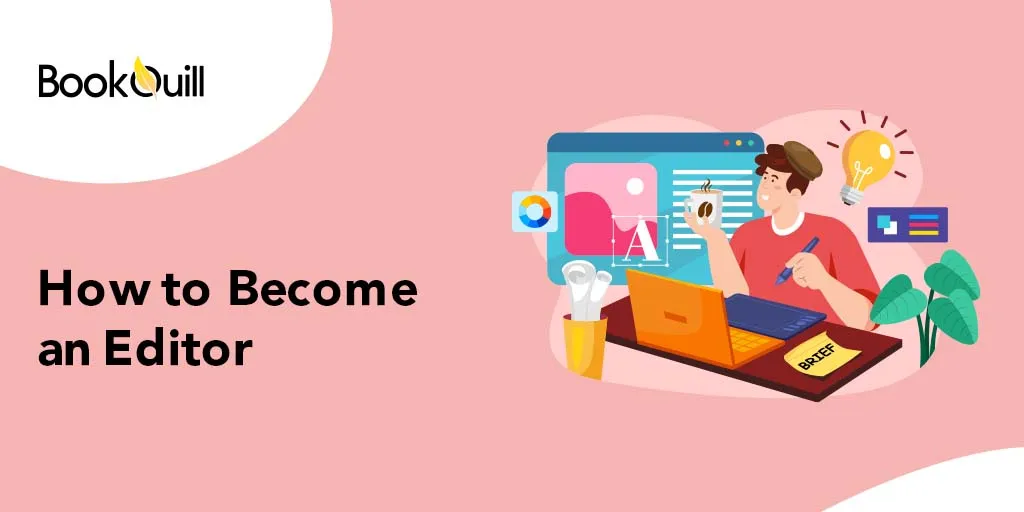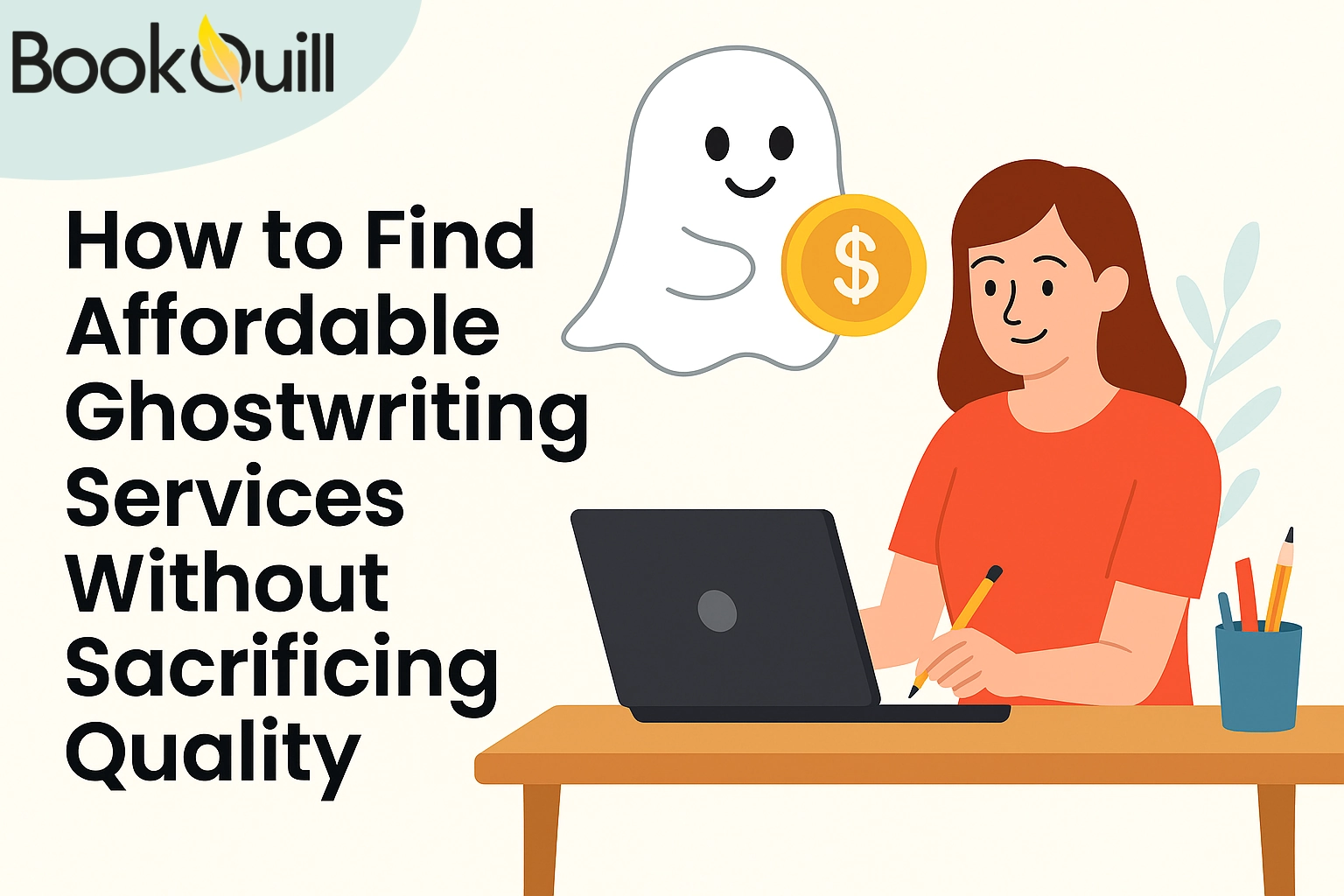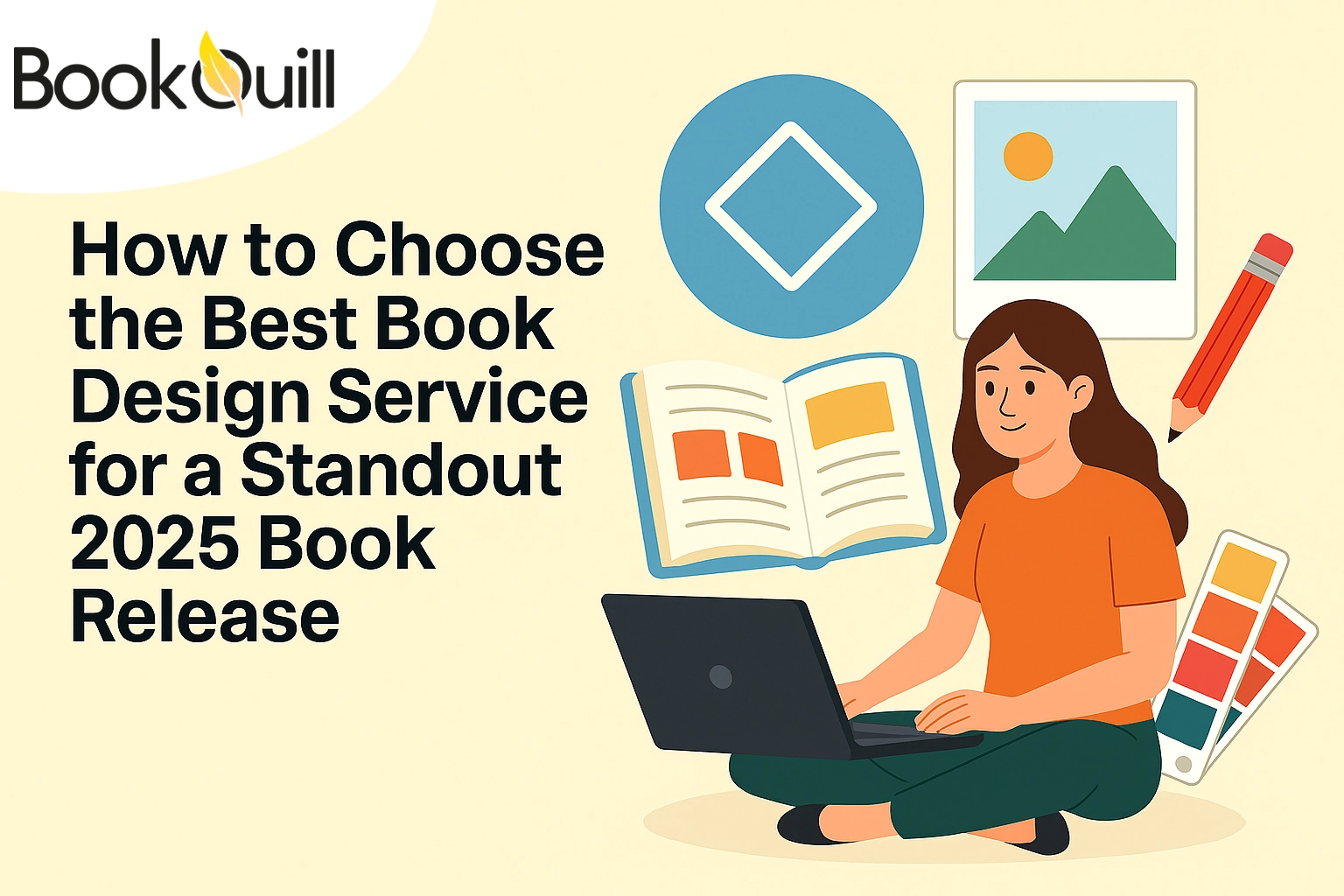Table of Contents
Explore Blogs
Trending on Ebook
How to Become an Editor: The Ultimate Guide

Behind every good book is a fantastic book editor. Writers develop the idea behind a piece and write the first draft, but the editors make it good enough for publishing.
Without an editor involved, the finished book would be riddled with errors and mistakes. For this reason, editors are key players in the literary industry.
Editing a book or any other piece of writing is hard work. It requires a solid understanding of grammar and an eye for spotting conceptual and structural flaws. If this sounds like you, read this guide and learn how to become an editor.
What Does an Editor Do?
An editor’s primary responsibility is to review, revise, and refine written material to be ready for publishing. This may include books, magazines, newspapers, website content, or advertising material.
Editors may also be tasked with planning and coordinating content or going through submitted manuscripts to decide what is worth publishing.
Editors play an important role in various industries, including journalism, publishing, and content creation. Their job responsibilities vary depending on the industry, role, and nature of the job.
There are many types of editors including, book editors, news and magazine editors, web content editors, academic editors, legal editors, and technical editors.
In this post, we will be mainly discussing book editing and how to become a book editor as a complete beginner.
Book Editor Job Description
Editors across industries have different job responsibilities. Here’s what a typical entry-level book editor job description looks like:
- Proofreading content for grammar, spelling, and punctuation errors.
- Assisting with basic editing, such as formatting and style consistency.
- Fact-checking information to ensure accuracy in the content.
- Keeping up with strict deadlines.
- Working with authors or writers for revisions and feedback.
- Offering ideas and suggestions to improve written material.
- Attend seminars and workshops to keep up with industry trends and standards.
Book Editor Salary
The most common question anyone looking to get into the book editing field asks is, how much do book editors make? Well, the salary of a book editor can vary based on factors such as experience, location, employer, and the specific industry.
According to data from the U.S. Bureau of Labor Statistics, the median annual pay for editors was around $75,020 as of May 2023.
However, salaries can range from around $38,790 for entry-level positions to over $138,920 for senior editors with extensive experience.
Book Editor Education Requirements
Can you become a novel editor without a degree? What degree do you need to be an editor? To become a book editor, you typically need at least a bachelor’s degree in English, communications, or Journalism.
Although most jobs mention these fields of study, any liberal arts degree focusing on writing and the English language would be appropriate.
Alongside a degree, you also need previous work experience in publishing, internships, and a solid portfolio.
You can still become an editor without having work experience if you have:
- A relevant degree.
- Completed relevant internships and attended workshops.
- A solid network with professionals that can assist you.
What Makes a Good Book Editor?
If you think you would be a good editor because you write well or did well in your high school English course, you’re mistaken. Writing and editing are two different things, and just because you’re good at one doesn’t automatically make you good at the other.
Not all writers make great career in editing , and not all editors make decent writers. Becoming an editor (a good one) requires a mix of qualities, characteristics, and strengths. These include humility, attention to detail, etc.
If you are wondering if you would make a decent editor, here are the important qualities of a good book editor you need to have:
Empathy and Respect
Editing is about making someone’s book better and helping them bring their vision to life. It shouldn’t cause a piece to lose its originality and authenticity, making it seem like a version of the editor and not the author.
It requires a certain amount of respect and empathy for someone else’s work to be able to preserve their voice while improving its quality. As an editor, you need to master this skill to do meaningful work.
We have all heard stories of editors completely changing a book and stripping it of any of the writer’s original content. This is never a good idea.
A good editor should understand the writer’s motivation and goals and offer suggestions that would help them achieve their goals.
Time Management
You need to have impeccable time management skills as an editor, especially if you want to become an editor for a publishing company. Publishing houses usually work on strict deadlines for editing, proofreading, and publishing.
Editors often handle multiple projects simultaneously and are expected to meet very strict deadlines without compromising on quality. Therefore, editing requires you to have excellent time management skills and nerves of steel.
Effective time management ensures editors can manage multiple projects at a time without compromising the quality of any, and that project deadlines are met as needed. Otherwise, the pressure of wrapping up a project would be overwhelming.
Strong Language Skills
You don’t have to be an impeccable writer to be an editor, but you must have a solid command of the English language. You must excel at grammar and syntax and be able to identify punctuation errors, spelling errors, and passive voice immediately.
Mistakes shouldn’t skip the editing stage because then they are in the final published version of the book, exposed to the world.
Critical Thinking
As a book editor, you must approach the manuscript with a critical eye. You have to analyze its strengths and weaknesses and identify all areas of improvement.
You can then offer constructive feedback and suggest revisions to better the overall quality of the content. But to be able to do this you must have excellent critical thinking skills.
Attention to Detail
As an editor, it’s your job to ensure that every aspect of the text you receive is consistent and flawless and consistent. From the sentence structure and grammar to the story and formatting, everything must be right. For this, you need to be able to pay attention to detail.
Let’s say a manuscript has plot holes, it is the editor’s job to detect any discrepancies in timelines, character traits, or plot points, to ensure the story plot is coherent throughout the book.
Without having a keen eye for details, you will not be able to spot errors and inconsistencies in the book. This can be disastrous because a badly edited book is difficult to read and costs the publishing house business.
Passion for Storytelling
Editors should be genuinely interested in telling stories. You can’t read and edit books for a living if you do not actually enjoy the process.
There will be days when the pressure to complete a task is overwhelming and you are racing against time to get it done. There will also be days when you’re dealing with difficult authors that make you hate your job. And on such days, your love for literature and storytelling will get you through.
You can’t be a good editor if you don’t enjoy it.
How to Become an Editor in 6 Steps
Breaking into editing is difficult, especially if you want to become a book editor for a traditional publishing company. The competition is tough, and the bar is high. You need a plan that you can follow to be able to land an editing gig.
Here are six steps you can follow to become an editor:
- Choose Your Type and Style of Editing
- Get a Bachelor’s Degree
- Refine Your Skills and Gain Experience
- Network With Professionals
- Sign up for Seminar/Workshops
- Build Up Your Resume
Choose Your Type of Editing
Did you know there are various types of book editors? Each role has its distinct requirements and responsibilities. If you want to become a book editor, you should know how these different types work and which role would suit you best.
Here’s an overview of the main types of book editors:
Developmental Editors
As a developmental editor, you will focus on the big picture of a manuscript, such as the structure, content, and overall plot and narrative. Developmental editors provide authors with feedback on the overall plot development, character arc, story pacing, and consistency.
The goal of developmental editing is to help authors ensure that the manuscript’s main concepts and storytelling elements are consistent. They look at the manuscript overall to ensure there are no plot holes, logical inconsistencies, unintentional loose ends, etc.
Line Editors
Line editors focus on the finer details of a manuscript. They are tasked with making sentence-level and stylistic improvements in the book. As a line editor, you will be polishing a story by improving language, and clarity, and ensuring consistency in style and tone.
Line editors work closely with authors to enhance the manuscript’s readability and impact while preserving the author’s voice.
Copy Editors
Copy editors correct grammar, spelling, punctuation, and syntax flaws in a manuscript. A copyeditor’s job is to ensure that the work aligns with style guidelines, such as AP Style or the Chicago Manual of Style, and maintains consistent formatting and language usage throughout the text.
Copyeditors also check for typographical errors and factual inaccuracies. Copy editing is what most people envision when they think about what book editors do.
Proofreaders
Proofreading is the final stage of the editing process where a manuscript is reviewed one last time before publication to catch any remaining errors and inconsistencies.
Proofreaders focus on identifying minor issues such as typos, missing punctuation, formatting glitches, and layout problems. This ensures the manuscript is free of errors and ready for publishing.
Get a Bachelor’s Degree
Most roles require editors to have at least a bachelor’s degree in a related field. English, Journalism, and Communications degrees are popular options, but any liberal arts degree with a focus on English language and writing would suffice.
You can also become an editor with a business or marketing degree; however, you would need to have a solid portfolio that showcases your writing skills.
A bachelor’s degree provides you with the transferable skills needed to become a professional editor. It also assures future employers that you have the knowledge and skills necessary to handle and organize book projects.
Get Hands-on Experience and Seek Internships
A bachelor’s degree surely adds credibility to your resume, but you also need to actively work on refining your skills and gaining hands-on experience.
Editors need to consistently work on their writing ability. Now, this doesn’t mean you need to have the skills of an incredible and elaborate fiction writer. It simply means you need to be able to write creatively and correctly, so you can offer suggestions and make corrections to an author’s writing.
You can polish your writing skills by starting a blog online or guest-posting for other online writing platforms. Furthermore, spend time learning about the newest writing and editing software, so you know which would work best for your clients.
Look out for internship opportunities at publishing houses. An internship will allow you to see what an editing job looks like in action. It is a great way to learn more about editing and form meaningful connections. Furthermore, internship experience could help you land a full-time job.
Sign up for Seminar/Workshops
Editors need to grow and learn continuously. A great way to do this is by attending workshops and seminars focused on editing. These will help you gain industry insights and polish your skills so you can be a better editor.
Workshops and seminars offer a great networking opportunity. You can meet fellow editors and learn more about their creative processes and editing styles.
Network With Professionals
As an editor, it’s important to meet people and make connections within the fraternity. Attend workshops, events, seminars, and conventions that are tailored to the literary industry.
In these spaces, you can meet fellow editors, authors, and publishers and learn more about the industry and the job.
Building relationships with people in the publishing industry not only helps with networking but also increases your visibility within the editing community. It can help you secure work and collaboration opportunities.
Build Up Your Resume
You must continue to improve your resume as you advance in your editing profession. Gain experience in different editing jobs like freelance work, internships, or volunteering to show that you’re good at lots of different things.
Highlight your accomplishments, talents, and areas of expertise in your CV so that employers and clients are interested in working with you.
Additionally, we recommend completing certifications or additional training in specific editing fields to bolster your resume and demonstrate your expertise in the industry.
Conclusion
Becoming an editor requires dedication, ongoing learning, and networking. By following the steps outlined in the guide, you can establish a solid framework for your editing career.
It’s important to remember that every action you take, whether it is polishing your skills pursuing internship opportunities, or actively seeking work, brings you closer to a successful editing career.
FAQs
Is it hard to become an editor?
Editing requires a combination of soft and hard skills and can be a tough industry to break into. However, by working on your skills, networking, and getting some experience, you can get an entry-level job.
How much do book editors make?
The average annual page of book editors is $78,500. However, this varies depending on experience, location, and skillset.
How to become a book editor
To become a book editor, develop strong language and writing skills, often through a degree in English, journalism, or communications. Gain experience by editing for small publications, freelancing, or interning with publishers. Build a portfolio showcasing your editing abilities and network with industry professionals to find opportunities.
How to become an editor for a publishing company?
You need to have a bachelor’s degree in English, Communications, or Journalism with editing experience to be an editor for a publishing company. Some publishing companies also require a master’s degree, if you are applying for a senior position.
Do you need a degree to be an editor?
Yes, you typically need a bachelor’s degree in English, Journalism, or Communications to be an editor. However, if you have a strong skillset and portfolio you will still be able to get a job as an editor.




